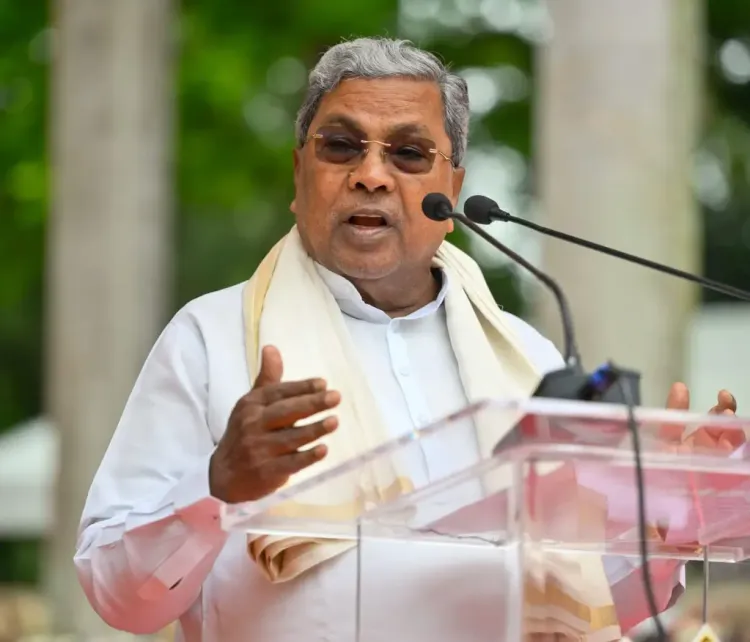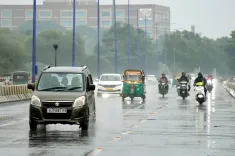Has Moral Policing in Karnataka Been Effectively Curbed?

Synopsis
Key Takeaways
- Karnataka's police force is credited with curbing unethical moral policing.
- New initiatives are underway to tackle narcotics effectively.
- Compassionate appointments and health benefits for police personnel have been increased.
- DCRE police stations are operational to protect Scheduled Caste rights.
- Community remembrance of fallen officers is crucial.
Bengaluru, Oct 21 (NationPress) Karnataka's Chief Minister Siddaramaiah commended the recent efforts in curbing unconstitutional and unethical moral policing that had adversely affected the state's dignity, development, and progress. He attributed this significant achievement to the diligent work of the police department.
During a ceremony honoring fallen police officers on Police Commemoration Day, he highlighted that the state's growth is contingent upon the police's ability to uphold peace and law and order. Hence, the reduction of unethical policing practices is a notable accomplishment.
Moreover, he acknowledged that a substantial initiative has been launched against the threat posed by narcotics, emphasizing the need for continued and effective action in this area. He reiterated that these successes are credited to the police force, as stated by CM Siddaramaiah.
To combat atrocities against individuals from the Scheduled Caste, new Directorate of Civil Rights Enforcement (DCRE) police stations have been established across the state, which must operate effectively to safeguard the constitutional rights and values.
In the previous year, eight police personnel from the state, among a total of 191 nationwide, lost their lives while serving. Their dedication and sacrifice are invaluable, and it is the duty of every citizen to remember and honor them.
He further asserted the crucial role of police personnel in maintaining the nation’s peace and order, particularly in countering communal and anti-social elements.
The police department, according to him, carries the responsibility of safeguarding the rights granted to citizens by the Constitution.
He announced that 116 compassionate appointments have been made through official orders. Additionally, the annual medical reimbursement for the retired police health scheme has been increased from Rs 1 lakh to Rs 1.5 lakh. The health check-up expenses for all police personnel have also been raised from Rs 1,000 to Rs 1,500.









